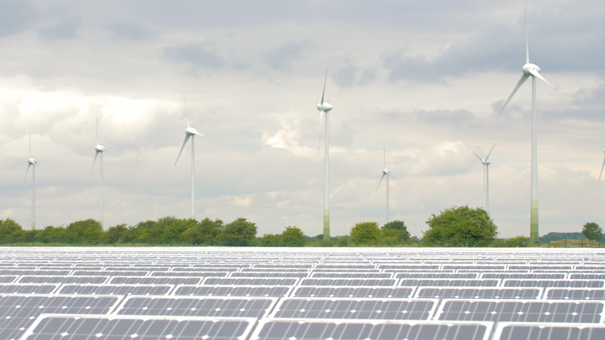
Green Energy
Jobs, growth and energy independence start with green power
February 19, 2026

August 28, 2025
Residents of the small Pacific island nation of Tuvalu are being offered visas to leave their increasingly uninhabitable home in what’s being called a landmark response to climate-related displacement.
Last month, one-third of Tuvalu’s population applied for Australian climate visas as rising sea levels threaten to engulf their homes. The world-first visa allows just 280 Tuvalu citizens per year to relocate permanently to Australia. But the first ballot on 27 June drew 1,124 applications, and when family members are counted, the total surpasses 4,000. Successful applicants will gain permanent residency and the right to travel freely between the two countries. The ballot entry cost A$25 (£11.93, $16.37) and closed on 18 July.
The scale of demand shows just how oversubscribed this programme is; a measure of the urgency to leave. And the reason is painfully clear: Tuvalu is sinking.
Sitting just 16ft (five metres) above sea level, Tuvalu is one of the most climate-threatened nations on Earth. With rising tides from a warming planet, scientists predict that 95% of the country will be underwater at high tide by 2100.
Tuvalu is rich in culture and history, yet has the smallest economy in the world and simply cannot afford the infrastructure needed to defend itself from climate change.
And Tuvalu will not be alone. According to the European Parliamentary Research Service, climate migration is set to become one of the defining human movements of this century. The Internal Displacement Monitoring Centre reported that at the end of 2024, 9.8 million people were internally displaced by disasters, on top of 73.5 million displaced by conflict and violence. Some projections warn of up to 1.2 billion climate refugees by 2050.
Scientists have been warning for decades that the climate crisis hits frontline communities first, and hardest. Low-lying nations like Tuvalu face existential threats they did little to cause. Per capita, their carbon emissions are tiny compared with the wealthy, high-polluting nations most responsible for the crisis.
As David Wallace-Wells writes in The Uninhabitable Earth, “the impacts [of the climate crisis] will be greatest in the world’s least developed, most impoverished, and therefore least resilient nations - almost literally a story of the world’s rich drowning the world’s poor with their waste.”
And yet, instead of recognising this reality, many rich nations are doubling down on policies that make it worse: approving new oil and gas fields, expanding airports, and subsidising industrial-scale animal farming. At the same time, they’re buying into the right-wing political agenda that seeks to curb or even ban immigration.
The UK, like other wealthy nations, is predicted to suffer far less from the direct impacts of climate change. But as seas rise and vast parts of the world become uninhabitable due to heat or flooding, the question is obvious: where will people go?
Current UK policy appears to be building walls rather than bridges - from the “stop the boats” rhetoric to ever-tighter immigration laws. But refusing to face up to climate displacement won’t make it go away. Instead, it risks creating exactly the “lose–lose” scenario governments claim to fear: displaced people with nowhere to go, and host countries unprepared and unwilling to help.
Climate refugees are the victims of an unequal world. They are losing their homes because richer countries have spent decades burning coal, oil and gas, churning out plastics, destroying rainforests, and polluting oceans. The idea that wealthy nations have no duty to help is not just morally bankrupt, it’s dangerous.
Rehoming those displaced by climate change should not be seen as an act of charity, but as part of the responsibility for causing the damage in the first place. The alternative is to let inequality harden into outright injustice and that has consequences for global stability, security, and economic wellbeing.
Australia’s climate visa for Tuvaluans is a groundbreaking step; but it also comes with contradictions. The country is still approving new oil and gas projects, directly undermining the future of the very people it’s offering to resettle. You can’t claim to be helping climate refugees while fuelling the crisis that creates them.
If wealthy nations are serious about climate justice, they need to stop treating migration as a problem to be solved and start addressing its root causes. That means cutting emissions fast, ending new fossil fuel developments, protecting vulnerable ecosystems, and building fair, humane systems to welcome those forced to move.
The Tuvalu climate visa is historic; but it’s also a warning. It shows us that climate migration is no longer a hypothetical future issue. It’s happening right now, and on a scale that will only grow.
We can either treat this as an opportunity to live up to our shared humanity or keep denying the problem until it engulfs us. Because the truth is, climate migration isn’t just Tuvalu’s story. If we stay on our current path, it’s everyone’s.